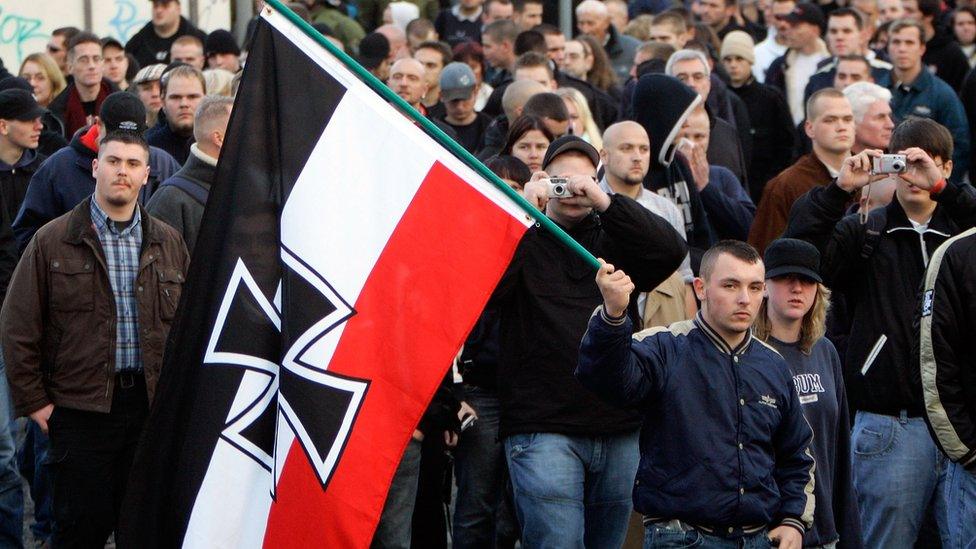Germany neo-Nazi trial: Zschaepe denies role in attacks
- Published
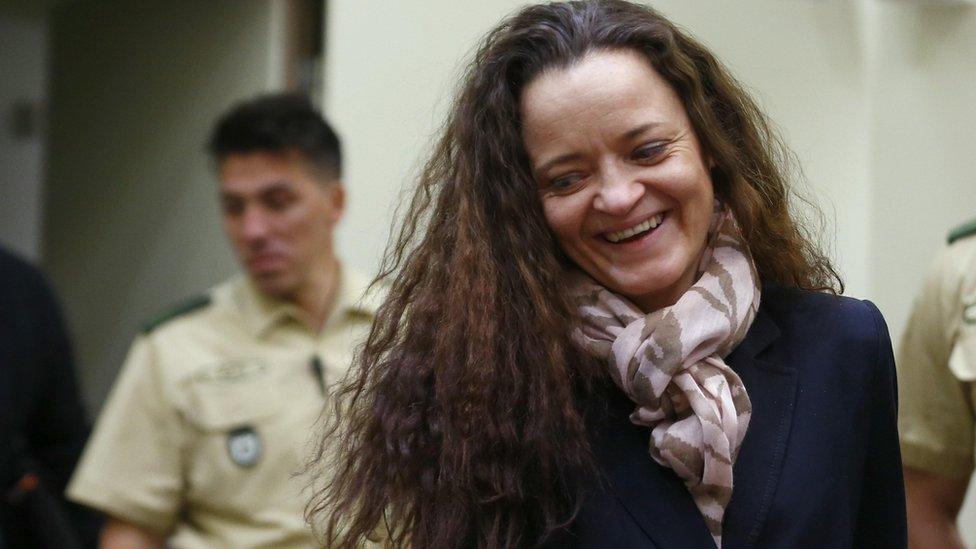
Ms Zschaepe, seen here arriving in court in Munich on 9 December, is breaking her silence for the first time in her trial
A German woman accused of being part of neo-Nazi cell that murdered 10 people has denied involvement in the killings.
Breaking her silence for the first time in two-and-a-half-years, Beate Zschaepe said she was not a member of the National Socialist Underground (NSU).
The group carried out series of racially motivated murders, bomb attacks and robberies over a decade.
In her statement, Ms Zschaepe apologised to the victims' families for failing to stop what had happened.
"I feel morally guilty that I could not prevent 10 murders and two bomb attacks... carried out by Uwe Mundlos und Uwe Boehnhardt," she said.
The two men apparently killed each other in a suicide pact in 2011 shortly before Ms Zschaepe handed herself in.
The 40-year-old said she first fell in love with Mundlos but met Uwe Boehnhardt on her 19th birthday and came into contact with his more nationalist friends.

Disappointed families - Jenny Hill, BBC News, Berlin
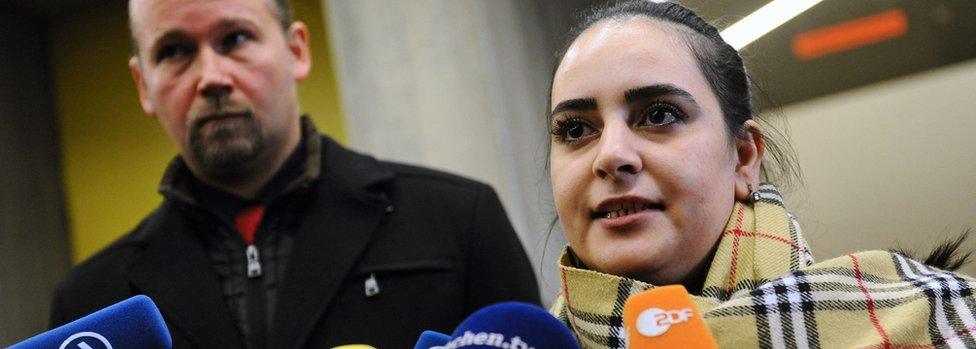
Gamze Kubasik, whose father Mehmet was murdered, was unimpressed by the statement
"Zschaepe's confession - nothing but excuses!" So runs a headline in the tabloid newspaper Bild.
Her statement was much anticipated - by the families of the NSU's victims, who hoped she might tell them why the cell killed their loved ones; by the German media who wondered whether she would show remorse; and by the German public.
The NSU's campaign of violence terrorised this country for more than a decade. Ms Zschaepe is the only surviving suspected member. And this is the first time she's given evidence since her arrest four years ago.
Most were disappointed. Few took her apology seriously. In the words of Gamze Kubasik, whose father was killed by the NSU: "Frau Zschaepe is trying to avoid responsibility. She won't save herself from a conviction."

The cell murdered 10 people, eight of them of Turkish origin, between 2000 and 2007 but went undetected for more than a decade. Critics say police and the security services made serious errors.
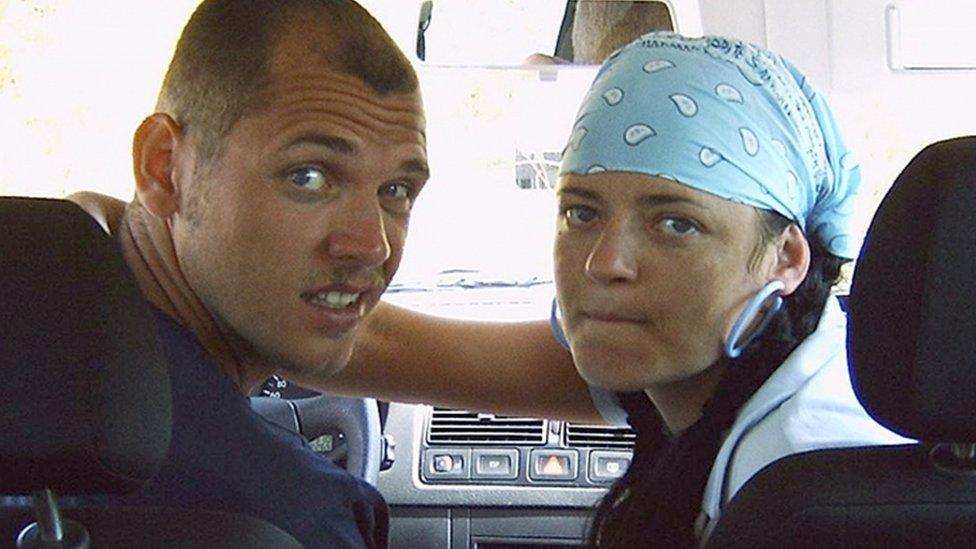
Uwe Boehnhardt (left) and Beate Zschaepe are seen here in an undated photo
Reading her 53-page statement aloud, Ms Zschaepe's lawyer Mathias Grasel began by telling the court about his client's childhood in East Germany, formerly the German Democratic Republic, and her difficult relationship with her mother.
He went on to deny his client's involvement in the preparation or execution in any of the group's attacks, but apologised to the victims' families for failing to stop them.
'Life was worth nothing'
She said she was unaware of the group's first murder until three months after it occurred. Enver Simsek, a florist, was shot in Nuremberg on 9 September 2000.
Ms Zschaepe said she told Mundlos and Boehnhardt that she wanted to go to police to hand herself in but they had threatened to commit suicide.
In her statement, she said she still did not know the motive for the killing.
However, she told the court the men murdered policewoman Michele Kiesewetter in 2007 in order to steal her gun.
She said she was so "disappointed" that her lovers had killed repeatedly that she drank three or four bottles of sparkling wine a day and neglected her cats.

Timeline of killings
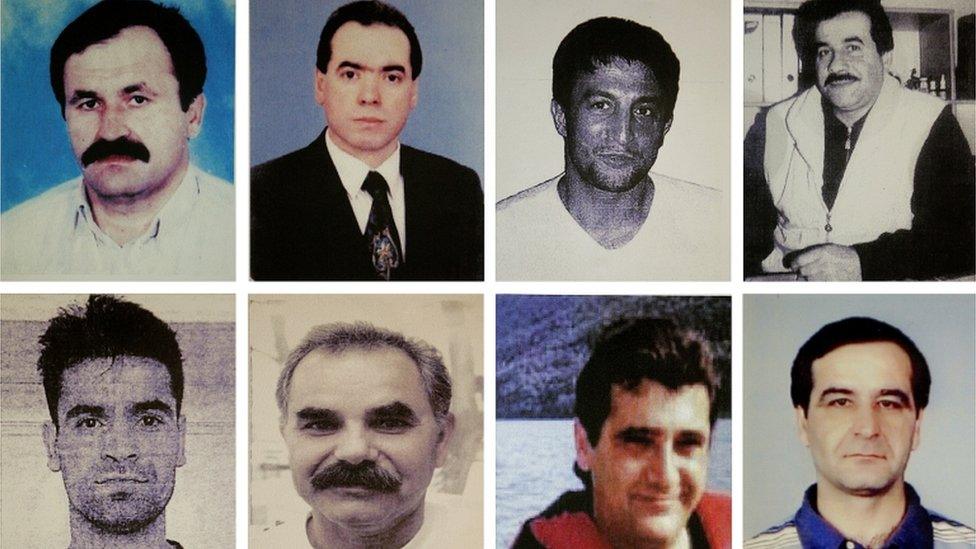
Eight of the 10 people the NSU is accused of killing
2000: Enver Simsek shot in Nuremberg
2001: Abdurrahim Ozudogru shot in Nuremberg, Suleyman Taskopru shot in Hamburg, Habil Kılıc shot in Munich
2004: Mehmet Turgut shot in Rostock
2005: Ismail Yasar shot in Nuremberg, Theodoros Boulgarides shot in Munich
2006: Mehmet Kubasık shot in Dortmund, Halit Yozgat shot in Kassel
2007: Michele Kiesewetter, a policewoman, shot in Heilbronn

"I realised I was living with two men to whom human life was worth nothing," Ms Zschaepe said.
The NSU cell remained undetected until Ms Zschaepe gave herself up in November 2011, after police discovered the bodies of two of her alleged accomplices in a caravan.
She is accused of setting fire to the apartment she shared with the men in Zwickau.
Prosecutors say the aim of the execution-style killings was to spread fear among immigrants and prompt them to leave Germany.
However, until now Ms Zschaepe has refused to shed any light on the group's motivations.
- Published6 May 2013
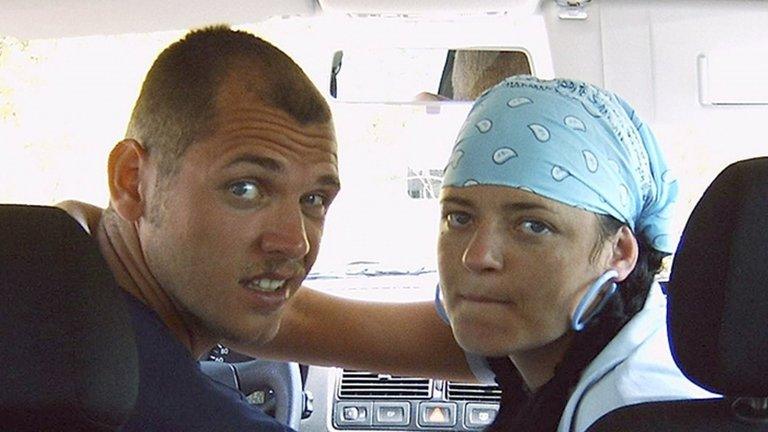
- Published27 March 2012
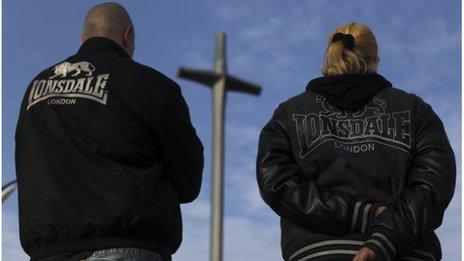
- Published14 August 2015
